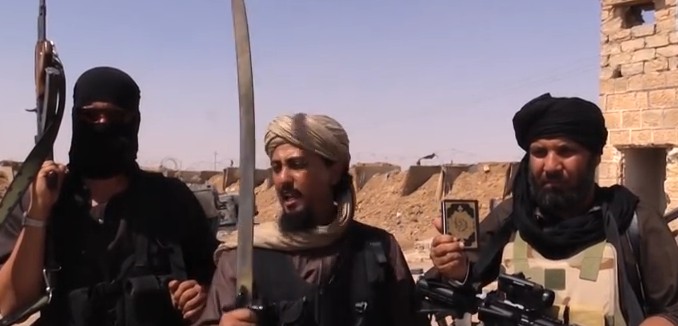Iran’s determination to prevent ISIS from encroaching on Shi’ite-dominated areas of Iraq, or parts of Syria held by the forces of Iran-allied dictator Bashar al-Assad, will allow it to gain regional influence and global respect, Reuel Marc Gerecht, a senior fellow at the Foundation for Defense of Democracies, and Ray Takeyh, a senior fellow on the Council of Foreign Relations, observed in an analysis published in Foreign Affairs on Sunday. By being seen as an indispensable partner in the fight against terrorism, Iran’s “cynical strategy…will likely do just enough to make sure the Sunnis don’t conquer the Shia portions of Iraq and Assad’s enclave in Syria, but no more. Meanwhile, in ISIS’ wake, Tehran will strengthen its own radical Shia militias.”
Iran’s model for operating abroad draws from its experiences in Lebanon in the early 1980s, when the regime amalgamated a variety of Shia parties into Hezbollah. Under Iranian guidance, Hezbollah targeted the United States, finally driving the country out of Lebanon by bombing the U.S. marine barracks in Beirut in 1983. That attack remade Lebanon; ever since, Tehran has had a commanding voice in the country’s politics and Hezbollah has served as its terrorist proxy and its most destructive auxiliary force in the Arab world.
The Islamic Republic repeated the Lebanon model in Iraq after 2003. Tehran had two complementary objectives: drive the United States out and prevent the formation of a new anti-Iranian Iraq. Once again, Iran turned to the development of radical Shia militias. The paramilitary outfits lacerated U.S. forces and intimidated, and sometimes killed, secular Shiites and recalcitrant Iraqi clerics.
Although it achieved its goal of expelling American forces from Iraq in 2011, Iran was still challenged afterward by independent Iraqi Sunni leaders. But ISIS has now given Iran another opportunity to achieve further control over its neighbor.
ISIS was thus a blessing. Neither a flatfooted United States nor the crumbling Iraqi army could muster an effective response. Iranian advisors and Shiite militias stepped into a vacuum, safeguarding Baghdad and consolidating Tehran’s influence with Iraq’s Shia population.
ISIS’s presence in the “Islamic heartland” of the Middle East means that Iran has “no interest in diminishing the sectarian bloodbath that has allowed it more influence than at any time since the 1979 revolution.”
Gerecht’s and Takeyh’s observation that Iran is not making a serious effort to defeat ISIS was previously made by analyst Michael Pregent in May, who wrote that ISIS’s continued survival allows Iran to claim “that their allies in both countries are the only thing preventing a jihadist takeover.”
Their observation is also consistent with a statement made by Secretary of State John Kerry on Saturday that Assad, an ally and client of Iran, had “cut his own deal” with ISIS and was helping not fighting the terror group.
[Photo: VICE News / YouTube ]




